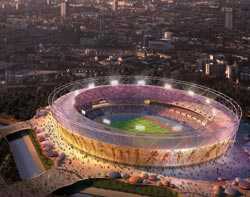 The IT powering the London 2012 Olympics and Paralympics has passed a major milestone with the formal opening of the Technology Operations Centre (TOC) at the Games’ headquarters in Canary Wharf.
The IT powering the London 2012 Olympics and Paralympics has passed a major milestone with the formal opening of the Technology Operations Centre (TOC) at the Games’ headquarters in Canary Wharf.
The TOC will provide central monitoring and control for all the IT systems and telecoms supporting the Games, with 450 staff from the London Organising Committee’s IT team and key partners working around the clock, with up to 180 workers overseeing operations at any time.
The TOC is the “key control centre to make sure everything is going as we wish,” according to London 2012 chief executive Paul Deighton.
The centre has been tested during the London Prepares series of sporting event designed to make sure all the venues and supporting technology are working as planned. During 79 days of competition so far, testing covered the set-up and take-down of 180 servers, 1,160 PCs and laptops, 190 network and security devices and more than 400 printers and copiers.
“Basically, things are performing as expected. We are where we need to be,” said London 2012 CIO Gerry Pennell.
A total of 200,000 hours of testing will be completed by summer 2012, with two “technical rehearsals” coming up in March and May to simulate “hundreds of scenarios,” said Pennell, including challenges such as cyber security and physical attacks on IT equipment.
During the Games, the TOC will oversee critical applications such as the Commentator Information System and the organisers’ intranet, as well as monitoring 900 servers, 1,000 network and security devices and 9,500 PCs. In total over 5,000 technology staff – including 2,500 volunteers – will be involved in the Olympics IT.
“The TOC is the decision-making centre for technology during the Games,” said Michele Hyron, chief integrator for London 2012 at Atos, worldwide IT partners for the Olympics. Other IT suppliers involved include BT, Cisco, Acer and Samsung.
Deighton added, Technology often goes unnoticed and yet is absolutely critical to our success in 2012. The Games cannot happen without technology.”
One of the new challenges for the London 2012 Games will be the amount of data generated from the results systems – 30% more than in the Beijing Olympics – providing real-time information to fans, commentators and broadcasters around the world.
“There are a number of familiar things from previous Games, but a number have moved along,” said Pennell, including “significantly enhanced” access to information from the public.
In anticipation of huge demand from event visitors using mobile devices, Pennell is working with BT and mobile network operators to ensure sufficient network capacity, including plans for an open Wi-Fi service for the Olympic Park in Stratford.
“We have worked very closely with BT and the mobile network operators to make sure there is enough infrastructure to provide a good level of [mobile] service during the Games,” said Pennell.
“But there will always be moments in any sporting event when demand is so huge that not everybody can get access.”
The IT team is also working on mobile apps for delivering event results and spectator information for fans at venues.
Computer Weekly